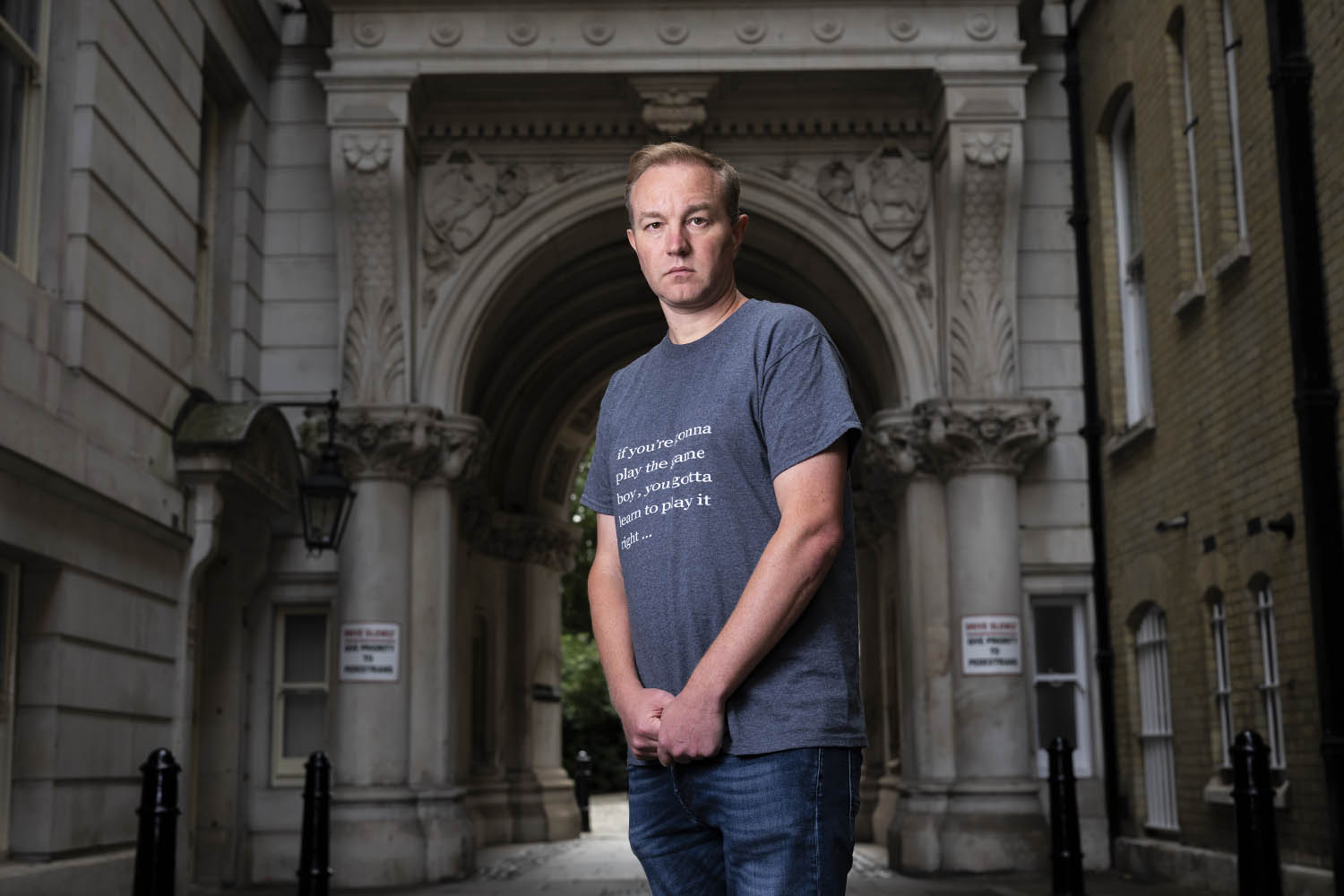‘The first nine to 12 months of prison is survival. A sort of surreal out-of-body experience, almost like it's not happening to you. The moment I got my conviction overturned, it felt very similar.”
In 2015, at the age of 35, the former City trader Tom Hayes was sentenced to 14 years in prison after being found guilty of manipulating Libor, which was the world’s most widely used interest rate benchmark.
Last week the Supreme Court overturned the ruling. Five judges unanimously found Hayes’s conviction was unsafe and said that the history of his case raised serious concerns about the effectiveness of the criminal justice system and, in particular, the process of appeal.
The quashing of Hayes’s conviction and that of Carlo Palombo, a former Barclays trader, threatens to reopen a Pandora’s box of recriminations that arose in the wake of the 2008 financial crisis, when banks and regulators were seeking to rebuild creditworthiness in the eyes of the public.
It also calls into question the cases of seven other traders convicted of Libor rigging, four of whom have already said they intend to appeal following the Supreme Court’s decision. Hayes says that every one of these convictions now “needs to go”.
Sitting in an office in Temple, wearing a T-shirt emblazoned with a quote from the crime drama The Gambler, it’s evident that Hayes is worn out from the ordeal. Hayes got out in January 2021, but during the five and half years he spent in Belmarsh high-security prison, the ex-UBS trader underwent the end of his marriage, mental health struggles, a conversion to God and the pain of having to watch his son become a teenager through a piece of Perspex.
Once released, he says it was the experience of watching Time, the hyper-realistic BBC TV series with Sean Bean depicting life inside, that made it all real again: “That it made me sob once again as a free man is the greatest compliment I can pay to that show,” he says.
Libor, or the London interbank offered rate, was a benchmark used to reflect the rates at which banks could borrow from each other. Every day, in order to calculate an average, 16 banks submitted answers to the question: “At what rate could the bank borrow funds by asking for and accepting interbank offers in a reasonable market size just prior to 11am?”
Related articles:
In 2012 the Serious Fraud Office (SFO) launched criminal investigations into whether traders were making higher or lower requests – colloquially known as “low-balling” – for the benefit of the bank’s commercial position.
Hayes’s alleged crime was to encourage his employer to make dishonest answers. His trial revolved around the question not of whether he had asked, but whether it was legal for him to have done so. He has argued that he was simply doing his job within the framework of what managers expected.
Newsletters
Choose the newsletters you want to receive
View more
For information about how The Observer protects your data, read our Privacy Policy
In the febrile aftermath of the financial crisis, a scalp was required. In comments to parliament, Clive Efford MP said that traders’ actions could be considered “treason”. Mark Carney, governor of the Bank of England from 2013, called for harsher prison sentences for bankers found guilty of malfeasance. “He knew that my trial was going on. It was hugely prejudicial,” says Hayes.
‘I have questioned whether I did the right thing for my son ... I was on the edge of cooperating’
‘I have questioned whether I did the right thing for my son ... I was on the edge of cooperating’
Tom Hayes
More than £7bn was eventually paid out in fines by banks including Deutsche, UBS, Royal Bank of Scotland, Barclays and Citigroup – but it wasn’t enough to settle the score.
“Institutions had a vested interest in settling early with the regulator and paying a fine. What that does is it potentially throws individuals under the bus… it cuts the knees out from under the defence,” says Ellen Gallagher, a lawyer who represented Peter Johnson, a banker who blew the whistle on low-balling at Barclays and ended up spending four years in jail.
In some ways, it was widespread misunderstanding of Libor that felled Hayes and Palombo. This lack of expertise was revealed in particular by one of the witnesses called by the SFO for the prosecution of two Barclays traders. Saul Haydon Rowe, a supposed expert on Libor, admitted texting friends mid-trial to ask them basic questions.
“This case, in common with the case of Lucy Letby, had the real problem of so-called expert evidence,” says David Davis MP. He points to a finding in a 2022 case heard in the US Second Circuit Court of Appeals – which deals frequently with technical legal matters on Wall St – which found that there was no fraud if the submitted Libor rate was one that the bank could actually borrow at, regardless of motivation. The irony is that if Hayes had decided not to fight extradition to the US, he might have served less time – or never been convicted at all.
“I have many times questioned whether I did the right thing for my son, because I was on the edge of cooperating… I would have spent very little time in prison. I probably would have kept far more of my money. I’d have been in and out. My family unit might have stayed together, and I wouldn’t have spent five and a half years away from my son.”
The SFO, which was given special funding by the Treasury to pursue investigations, faces questions about how it carried them out. Politicians might do some soul searching too. “The government subcontracted a great deal of the prosecutorial function to the banks and their lawyers, allowing them, in effect, to pick the victims and serve them up as scapegoats,” in Davis’s opinion.
Ultimately, the overturning of Hayes’s case relied on a technicality. Jurors were told by the presiding judge that a set Libor rate would inherently not have been “genuine or honest” if it was “influenced by trading advantage”. This question, which should have been determined by a jury, was taken as a matter of law.
To Hayes’s annoyance, the five appeal judges said there was still “ample evidence” that might have formed a basis for conviction. “It frustrates me because I’d rather have had a retrial. That would have put that sentence to bed,” he claims.
Photograph by Antonio Olmos/The Observer



